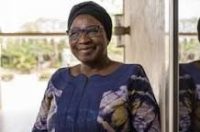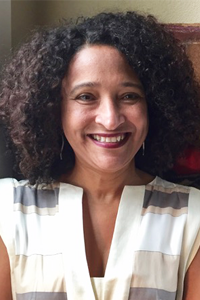Dr. Monique Ilboudo

Monique Ilboudo is a Burkinabè writer, academic, and activist committed to promoting women’s citizenship.
Her column Féminin pluriel, which dealt with the situation of women in Burkina Faso and her first novel Le Mal de Peau, brought her to prominence in the 90s.
In 1998, Monique participated in the project Rwanda, écrire par devoir de mémoire, initiated by the Fest’Africa Festival. She then published Murekatete, a first-person account of the genocide.
Doctor in law, she taught before occupying official positions: Minister for the Promotion of Human Rights, then Ambassador of Burkina Faso to the Nordic and Baltic countries with residence in Denmark.
Since 2015, she has resumed to teaching law at Thomas Sankara University (Ouagadougou) and reconnected with her passion for writing. In 2018, she published Si loin de ma vie, which addresses the themes of the emigration of young Africans and homosexuality, among others.
Her latest novel, Carrefour des veuves, (Ed. Les Lettres Mouchetées, 2020) tells the story of the courage and resilience of women in the Sahel in the face of terrorist violence. Carrefour des veuves was a finalist for the Orange Book Prize in Africa 2021 and winner of the Foreign Literary Prize for Human Rights, Paris, 2021.

